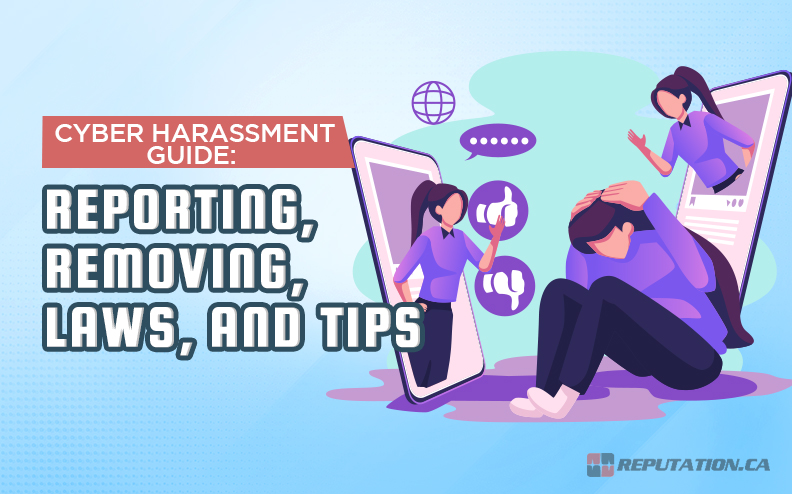Almost everyone on the planet uses Twitter, Facebook, Snapchat, and many other communication tools on the internet. At a distance, these platforms are revolutionary and beneficial to everyone. Unfortunately, everything good has a dark side created by those who use them.
Social networks and communication platforms are accessible to anyone with a working internet connection. While this makes it easy for most of the population to access these services, there are issues with something like this being widely available. Some people use these platforms to communicate with people who want to keep strangers out of their lives. These individuals will pester the subjects of their obsession by incessantly messaging them or making their private lives a public spectacle.
This harassment can harm your mental health, safety, and reputation as these individuals drag you through their nonsense. Cyber harassment is a serious issue affecting millions daily, making it important to know how to respond to avoid the fallout.
What is Cyber Harassment?
Cyber harassment is simultaneously one of modern society’s simplest and most complicated issues. While it affects millions of adults, it can affect members of almost every age group. In our youth, cyber harassment is identified as cyberbullying and is something we are taught never to inflict on others. Once we exit school, cyberbullying becomes cyber-harassment, but the basic principle is identical despite the name change.
Cyber harassment involves any communication or online activity that harms another person’s mental well-being. The most common example is when someone constantly messages you online through multiple accounts to berate you or seek your attention.
Unfortunately, other examples of cyber harassment are more severe than that particular example. Cyber harassment can involve false claims about a person or organization that harm their reputation—for example, claiming that someone engages in illegal activities that spark concern with the general public. For the most part, cyber harassment involves divulging private information to the rest of the internet to embarrass or shame the victim.
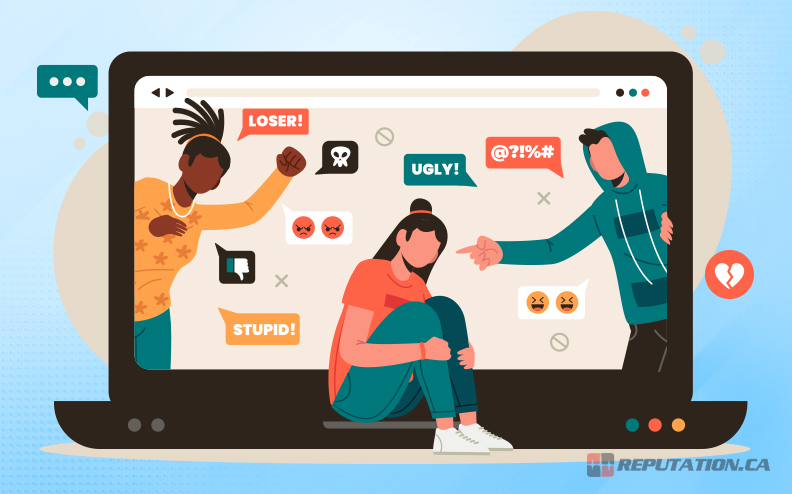
A common example of cyber harassment that affects adults is the distribution of revenge porn. This is a situation in which a disgruntled ex-partner or an individual who has accessed your saved media releases compromising images or videos online. Revenge porn is one of the most nefarious and despicable forms cyber harassment can take. It is also one of the most common, making it a major issue worldwide. There are other examples of cyber harassment that are arguably less severe than revenge porn distribution, but they are no less serious.
Cyber harassment can be executed via any digital medium and does not necessarily require the perpetrator to divulge the details publicly. Sometimes, harassment occurs when someone posts an unwanted comment on your social media profile. (i.e., making strange comments about you on your Facebook wall for all to see.) Other times, it is more private, and the harasser messages you privately to try and accomplish a terrifying goal. They could be expressing an unhealthy and unnatural sexual interest in you or simply threatening your life due to something you said or did.
Cyber harassment has also been normalized to a degree as people have used it to “punish” controversial comments made by others. They will spam the person’s social media accounts with derogatory statements or death threats, attempt to get them fired from their job, or release private information like an address or phone number so the harassment can continue offline. Unfortunately, cyber harassment does not appear to be going anywhere and remains a constant threat to anyone with an online presence.
Fortunately, there are situations where you can act against your harasser and possibly remove them from a platform. The circumstances will vary, but most forms of cyber harassment are dealt with swiftly by the platforms on which they occur. In extreme cases, you might be able to report them to law enforcement officials to have the harasser dealt with legally.
Step #1: Report Cyber Harassment
Most social media platforms take a firm stance against all forms of harassment, but the killer is in the details. Every social media platform has community standards users agree to follow when creating their accounts. When someone violates these guidelines, it is possible to report them to the website to have their actions assessed. While a social media platform might not necessarily stop the harassment immediately, they usually take these claims seriously and begin an investigation as quickly as possible. The trick is knowing what the community guidelines on the website say about the specific harassment you have endured.
Facebook, Reddit, Twitter, Tik Tok, and every other social media platform take hate crimes very seriously. When harassment is based on ethnicity, sexual orientation, religion, biological sex, etc., these websites will take the claims very seriously. For example, let us say that you are an African-American using Reddit, and someone begins leaving comments with racist slurs on all your posts. Reporting that to the mods of that subreddit will likely see those comments removed from all your posts, and the offender will likely be banned from the platform outright.
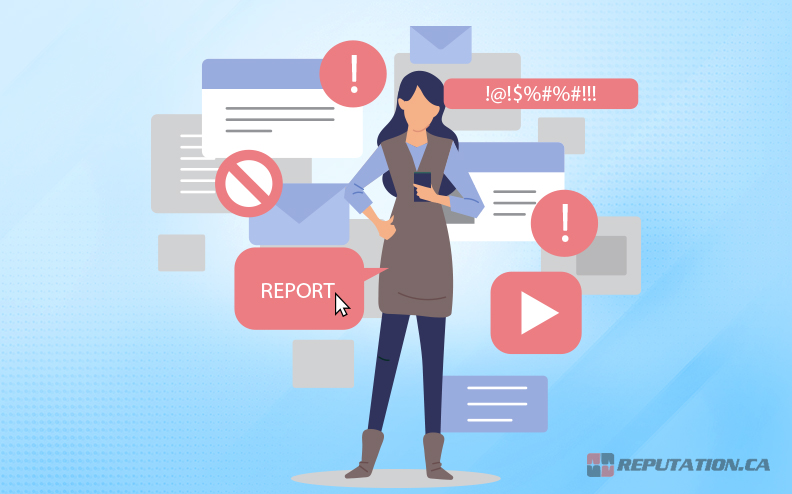
Some websites are more complicated due to a disparate moderation system. For example, Reddit employs subreddits where users can subscribe to communicate with others who share an interest. A subreddit dedicated to puppies is appropriately called “r/puppies,” with hundreds of thousands of subscribers. The thing about Reddit is that every subreddit can create its own rules to protect freedom of speech, using Reddit’s community guidelines as a backup in extreme cases. In r/puppies, the main rules are:
- The content posted in r/puppies must involve puppies.
- Users cannot use the subreddit to sell puppies.
- Users cannot use the subreddit to request medical advice.
- The posts on the subreddit must be peaceful.
- Users cannot post memes or image macros on the subreddit.
- Users cannot request upvotes (a like system used by Reddit) in their posts.
When someone violates a subreddit’s rules, the subreddit’s moderators can investigate independently of Reddit’s staff. If they deem the post or comment has violated their regulations, the post will be deleted, and the user will be issued a warning. Repeated offenses will lead to the user being banned from the subreddit. In extreme cases, the warning stage might be skipped, and the user will be banned outright.
All of this is to say that you should report harassment to the platform’s moderators where it occurs. Genuine harassment will likely be dealt with, and the perpetrator cannot use the same platform to harass you. However, you should review the website’s community guidelines before reporting them to ensure the best results. In scenarios where the harassment threatens bodily harm or death, you should report the offense to the authorities. Issuing threats, online or otherwise, is a federal crime and could lead to the incarceration of your harasser if you document the messages and posts.
Step #2: Privatize Your Accounts
There will be situations where the harassment you are experiencing does not meet the definition of the platform or the law. In these scenarios, you are left to your own devices to minimize or prevent further harassment. This might seem impossible, but there is a method to prevent your account from being accessed by anyone you do not trust. The best way to do that is to make every social media account you have private. Privacy settings are available on virtually every major social media platform and can be tailored to your specific needs. Most platforms offer settings that make it impossible for someone to view your profile without being invited first.
For example, Facebook allows you to limit who can look you up in its database so you can protect yourself from potential harassment. Limiting the accessibility parameters to your existing friends will make it impossible for your would-be harasser to access your account since the results will not show it to them. Twitter and Instagram offer the same functions, allowing you to set your profile to private and hide the content from anyone you do not befriend first.
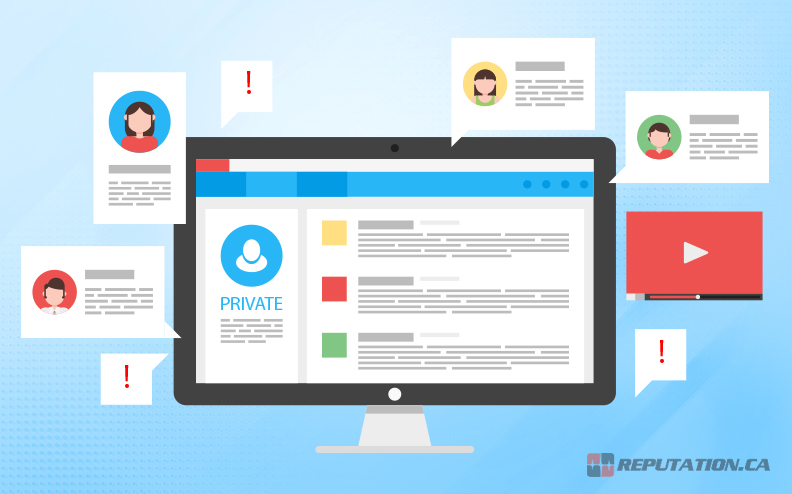
These functions also prevent your would-be harasser from messaging you directly since that function is locked out. Any posts someone else makes with you tagged in them will be visible and accessible if the poster has not done the same thing. Fortunately, being tagged in a post does not enable a random user to access your profile.
Privatization also allows you to separate your private life from your professional one by ensuring disgruntled customers cannot access your private accounts after meeting you in a professional setting. It also limits which co-workers can access your private life, minimizing the risk of having your private life impact your professional image. Privatizing your account is usually as simple as checking a box in the privacy settings of your social media account.
What Laws Exist About Cyber Harassment?
Unfortunately, few federal laws protect citizens from cyber harassment like unsolicited messages or annoying posts. Even doxxing is not a federal crime, and that involves the distribution of private information. The worst part is that revenge porn has only recently been considered a federal crime. Until now, revenge porn was a state crime that was not recognized in all 50 states. Most cyber harassment crimes fall under the auspices of the platforms where they happen, meaning you must rely on community guidelines to address most forms of harassment. That said, there is one federal law that protects us from online harassment that involves threats.
The United States Code has a law that dictates proper conduct for interstate communications, including online harassment.
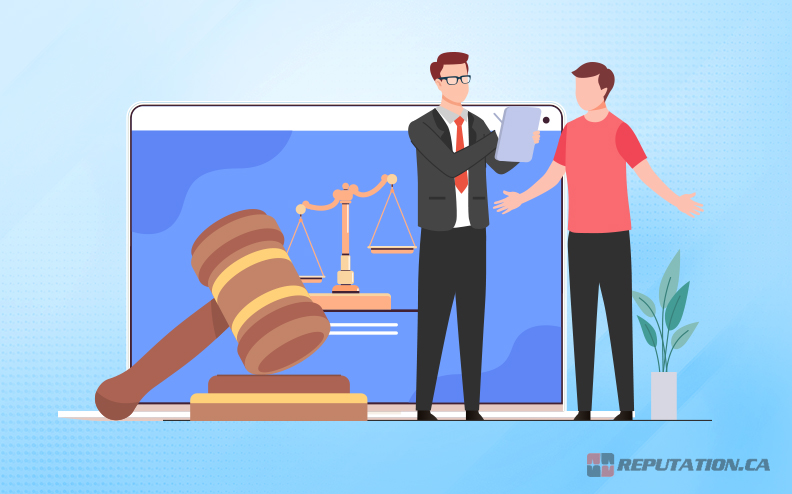
Per that law:
“a) Whoever transmits in interstate or foreign commerce any communication containing any demand or request for a ransom or reward for the release of any kidnapped person, shall be fined under this title or imprisoned not more than twenty years, or both.
(b) Whoever, with intent to extort from any person, firm, association, or corporation, any money or other thing of value, transmits in interstate or foreign commerce any communication containing any threat to kidnap any person or any threat to injure the person of another, shall be fined under this title or imprisoned not more than twenty years, or both.
(c) Whoever transmits in interstate or foreign commerce any communication containing any threat to kidnap any person or any threat to injure the person of another, shall be fined under this title or imprisoned not more than five years, or both.
(d) Whoever, with intent to extort from any person, firm, association, or corporation, any money or other thing of value, transmits in interstate or foreign commerce any communication containing any threat to injure the property or reputation of the addressee or of another or the reputation of a deceased person or any threat to accuse the addressee or any other person of a crime, shall be fined under this title or imprisoned not more than two years, or both.”
These laws mean any harassment threatening the outlined actions can be reported to the proper authorities. If the harasser is found guilty of these actions, they face years of incarceration that will prevent them from harassing you further.
Take Your Reputation Back!
Cyber harassment is a serious issue where one person uses their online presence to harm someone else’s mental health and reputation. Regardless of the form this harassment takes, it can cause serious damage if you do not prevent or correct it before it gets too far. Sometimes, the best way to protect your reputation from taking these kinds of hits is to get a little help.

We at Reputation know that cyber harassment can harm your image and safety. That is why we encourage you to visit our website and take your reputation back!
If you ever have any questions about cyber harassment, how to combat cyber harassment, or anything else related to the topic, you’re always free to reach out and contact us. We’d be more than happy to answer any of your questions regarding cyber harassment and assist you further however we possibly can. We’re only a single call or message away.




